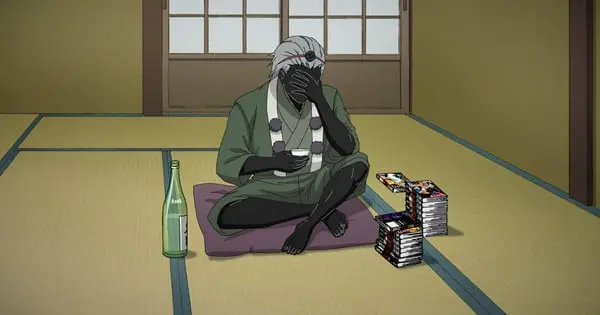The anime series, “I’ll Become a Villainess Who Goes Down in History,” has concluded its first season with a finale that is both surprising and true to its unconventional premise. The final episode, titled “The Villainess and the Prince,” sees protagonist Alicia Williams orchestrate her own exile, a development that subverts the typical villainess trope and sets the stage for a potential second season.
A Calculated Departure
The episode opens with the shocking revelation that Prince Duke, Alicia’s love interest, appears to have lost his memories of her. This amnesia leads to a public trial where Alicia is accused of using dark magic. Mel, a close ally, even testifies against her, further solidifying the narrative of Alicia as a dangerous villainess. The result is that Alicia is sentenced to exile, seemingly fulfilling the traditional fate of a villainess in an otome game scenario.
However, this is not a case of a villainess being defeated; rather, it is a meticulously planned exit strategy orchestrated by Duke himself. He was aware that Alicia’s ambition to become the greatest villainess would require her to leave the kingdom and venture into enemy territory. He feigned amnesia and arranged the trial and exile so that Alicia would be able to enter the neighboring nation of Laval without raising suspicion. The whole scenario is an act, with only a select few, like Mel, aware of the true plan.
The Duke’s Unconventional Declaration
This elaborate deception is, in essence, Duke’s unconventional declaration of love. He understands and supports Alicia’s goals, even if it means their temporary separation. His love for her is not about trying to change who she is, but rather, enabling her to pursue her ambitions. In his view, Alicia settling down in the kingdom would lead to stagnation, preventing her growth as the ultimate villainess. This unique perspective sets “I’ll Become a Villainess Who Goes Down in History” apart from other series of the same genre.
The Role of the Black Rose
A significant element revealed in the final episode is the significance of the black rose. It is revealed that this rose, which had never been previously mentioned, bloomed when Alicia was seven years old, coinciding with the moment she gained her memories of the otome game world. According to Alicia’s mother, this event signified that Alicia would bring significant change to the country. This detail, while feeling somewhat contrived, adds a layer of depth to Alicia’s character and destiny within the narrative, connecting the themes of the narrative to her personal journey.
Alicia’s Relationships and Growth
Throughout the series, Alicia’s relationships with other characters have been a focal point. Her dynamic with Liz, the saint, undergoes a significant transformation. Initially presented as rivals, they eventually reach an understanding. Liz, after realizing the effects of her charm magic, strives to become a saint for her own sake, not for others. This moment of understanding helps resolves the tension between the two.
Alicia’s relationship with Gill, a commoner boy who admires her, is also notable. The final episode features a touching farewell scene between them, further emphasizing the genuine connections Alicia has made despite her attempts to be villainous.
The Final Kiss and Departure
Before leaving, Alicia shares a passionate kiss with Duke, solidifying their feelings for one another. Despite agreeing to wait for each other, their separation is not without tension. As Alicia is exiled and sent to Laval, she is blinded, cuffed, clothed in rags, and left alone. However, she is happy as it aligns with the traditional fate of villainesses. She is now free to pursue her goal of becoming the ultimate villainess.
A Finale with Potential
The ending of “I’ll Become a Villainess Who Goes Down in History” is not a conclusion but rather a well-calculated set up for further adventures. The series has successfully deconstructed the otome game heroine archetype, providing a fresh perspective on the villainess narrative. With Alicia now in Laval, the possibilities for a second season are extensive. The focus will likely shift to the political schemes and conflicts in Laval, allowing Alicia to continue her transformation into a historical villainess.
While some may find the finale’s plot twists somewhat rushed or contrived, it ultimately serves the purpose of propelling the story forward. The series has demonstrated its ability to blend humor, romance, and intrigue, and the finale leaves viewers eager to see what awaits Alicia on her journey. The unconventional love story between Alicia and Duke, their mutual support for each other’s ambitions, and the overall theme of defying expectations are what make this anime a memorable addition to the villainess genre.
“I’ll Become a Villainess Who Goes Down in History” has concluded its first season with a finale that is both satisfying and open-ended. The unique way it presents a villainess who embraces her role and orchestrates her own destiny makes it a stand out show in the isekai genre. The stage is now set for the next chapter of Alicia’s journey.










